ERC Grants without secrets: A meeting with the ERC Scientific Council in Warsaw
Over 100 researchers gathered on the 24th of October in Warsaw to meet the representatives of the ERC Scientific Council. Polish scholars learned how to manage their careers wisely as well as what are the requirements to apply for prestigious ERC grants. The workshop was organized by the Polish Academy of Sciences.
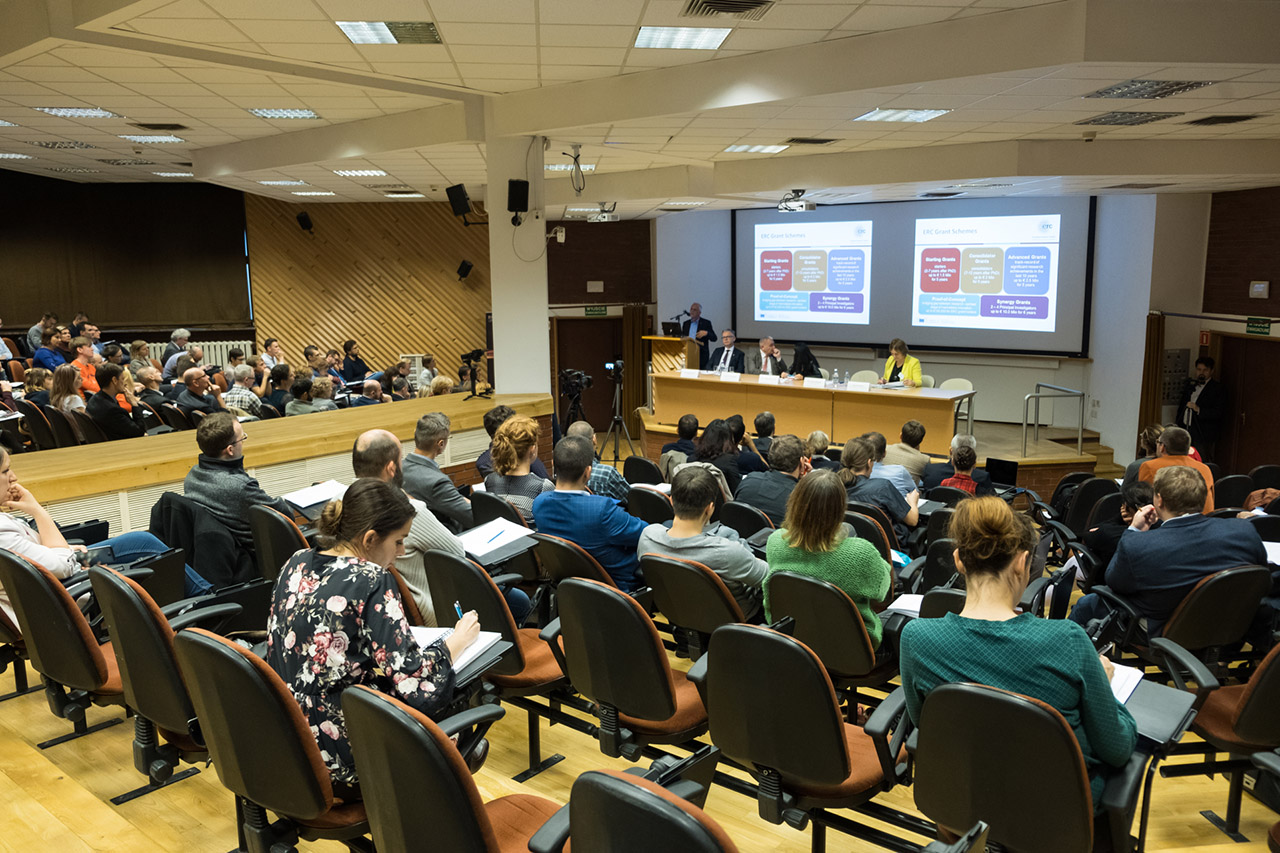
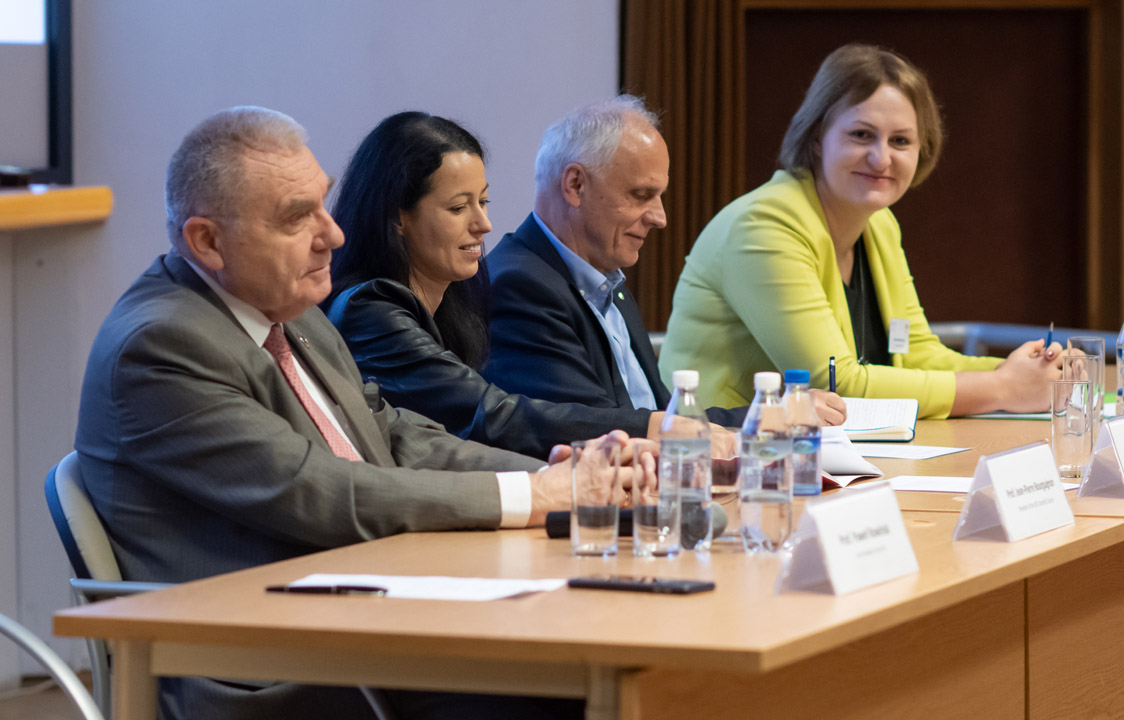
Prof. Jean-Pierre Bourguignon, Anna Budzanowska (Polish Ministry of Science and Higher Education), prof. Andrzej Jajszczyk, and Ewa Kuśmierczyk (Polish Academy of Sciences).
The participants were welcomed by prof. Paweł Rowiński, the Vice President of the Polish Academy of Sciences, and Anna Budzanowska, the director general of the Ministry of Science and Higher Education. Afterwards, the floor was given to ERC experts. First, prof. Jean-Pierre Bourgignon, the President of the ERC, explained exactly how the ERC grants differ from other sources of funding. Next, prof. Andrzej Jajszczyk, a member of the ERC Scientific Council, presented a detailed offer of ERC grants program. Finally, Ewa Kuśmierczyk, the Director of the Excellence in Science Department, talked about the support for researchers offered by the Polish Academy of Sciences.
Fascinating thematic sessions
Next in the program were three parallel thematic sessions. The first session was dedicated to physical sciences and engineering. During the session it was discussed what qualities an excellent applicant for the ERC grant should have. Practical advices were given by two members of the ERC Scientific Council. Whereas prof. Barbara Romanowicz focused on an application evaluation process, prof. Tomas Jungwirth compared situation in Poland and Czechia. The session was concluded with the success story of Dr. Piotr Achinger from the Institute of Mathematics of the Polish Academy of Sciences, who won the ERC Starting grant only three years after obtaining a doctor title.
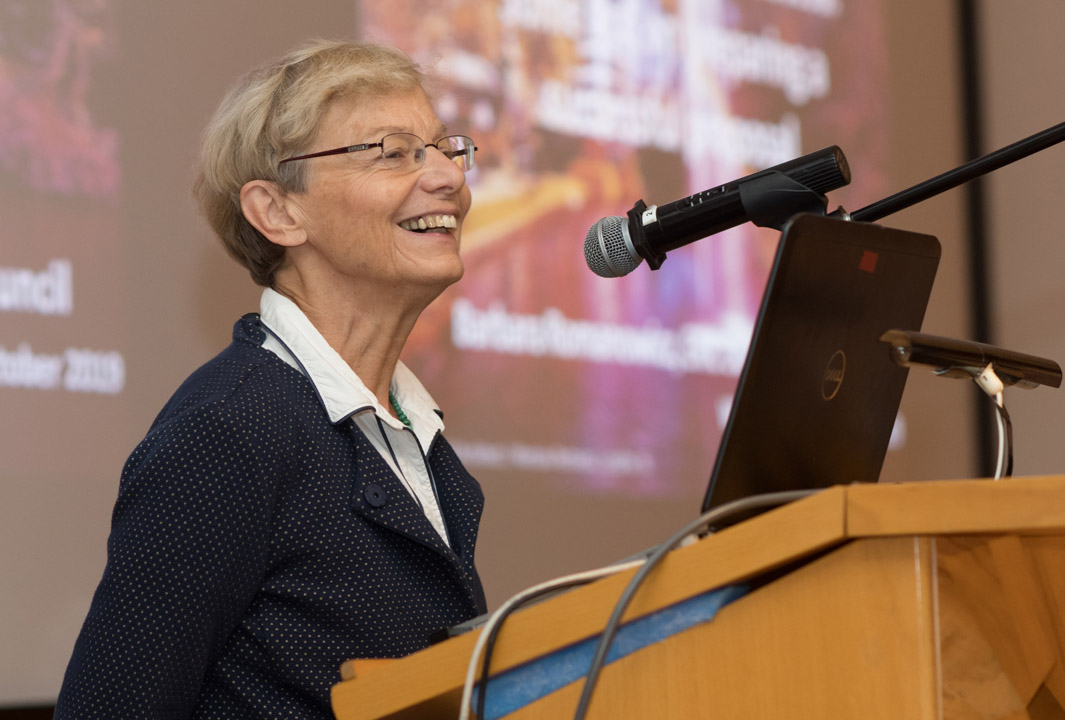
Prof. Barbara Romanowicz
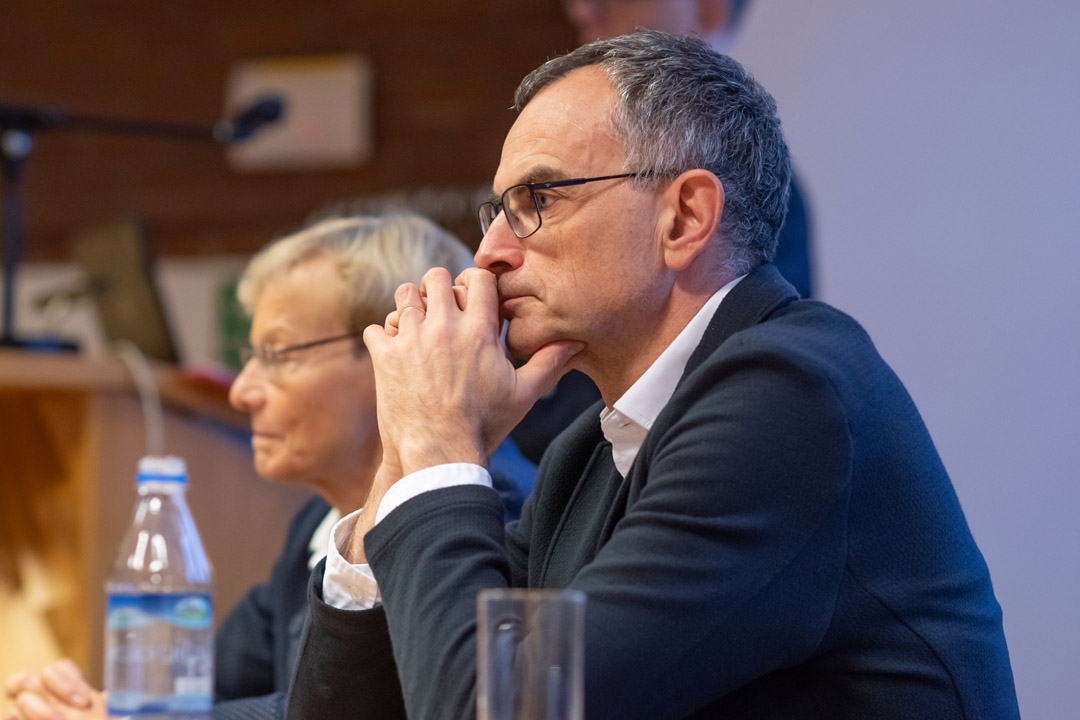
Prof. Thomas Jungwirth
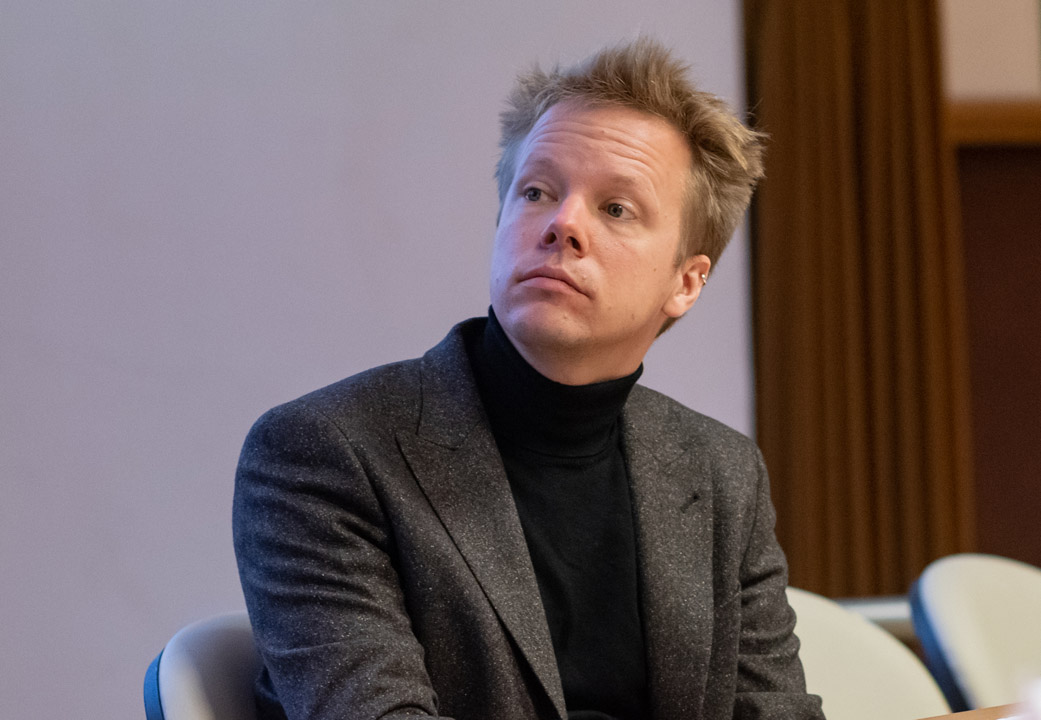
Dr Piotr Achinger
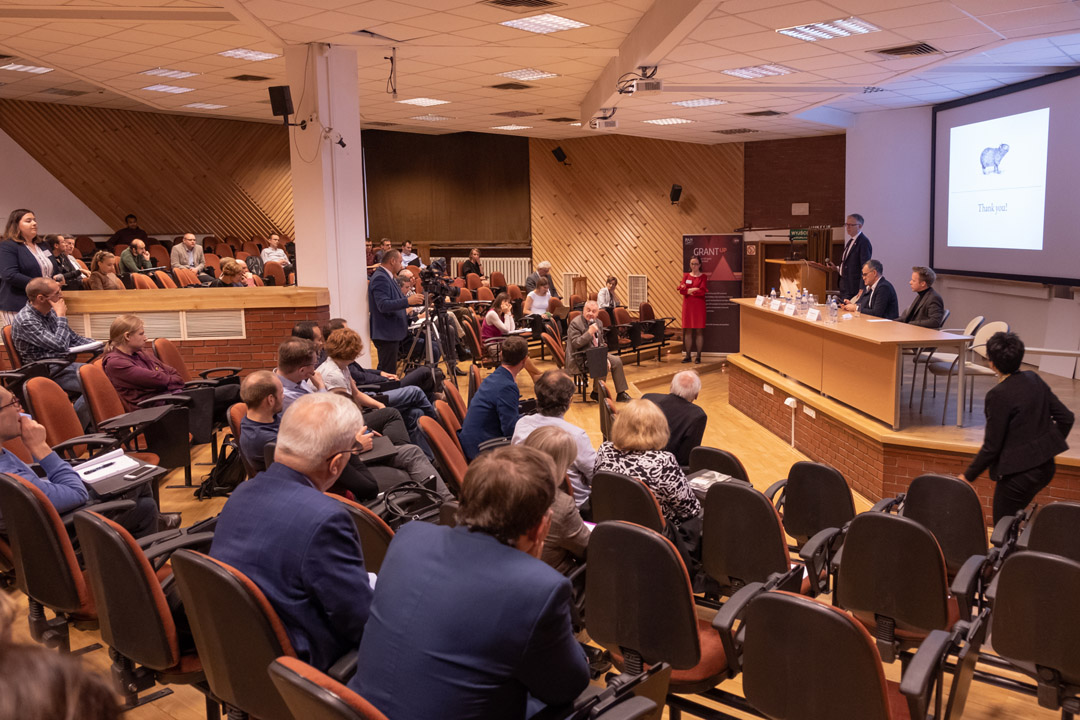
The second session dealt with life sciences. Prof. Nektarios Tavernarakis, a member of the ERC Scientific Council, instructed Polish scholars how to formulate a competitive research idea. Afterwards, prof. Andrzej Dziembowski from the Institute of Biochemistry and Biophysics of the Polish Academy of Sciences, shared his experiences gained while working on his already finished project, for which in 2012 he received the ERC Starting grant.
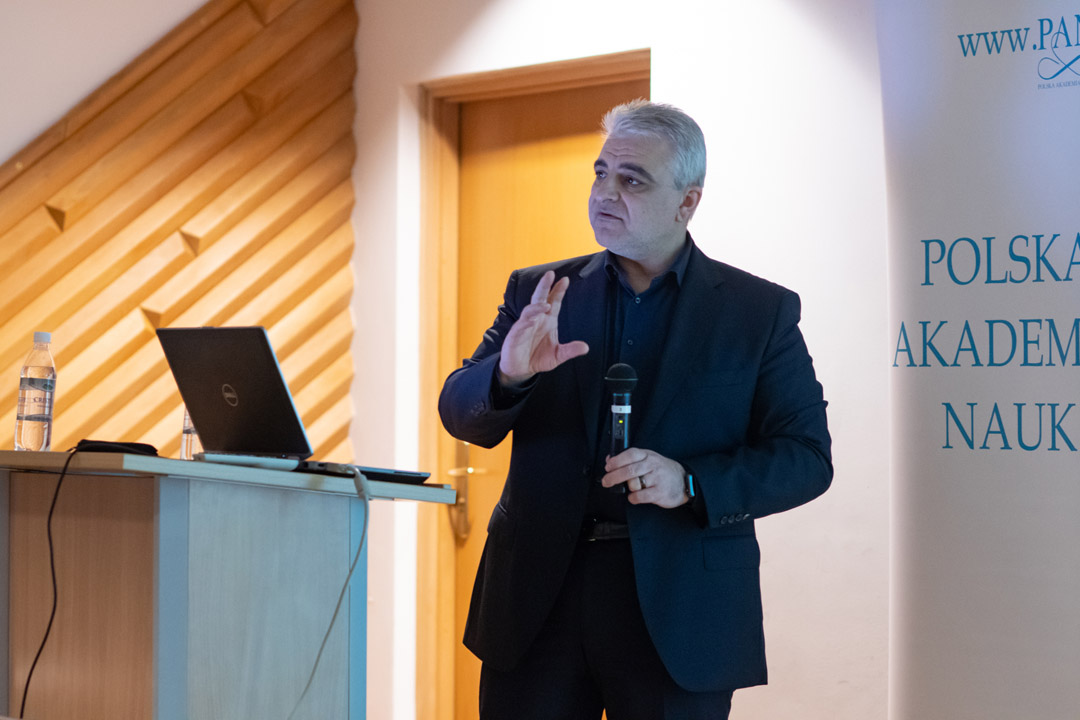
Prof. Nektarios Tavernarakis
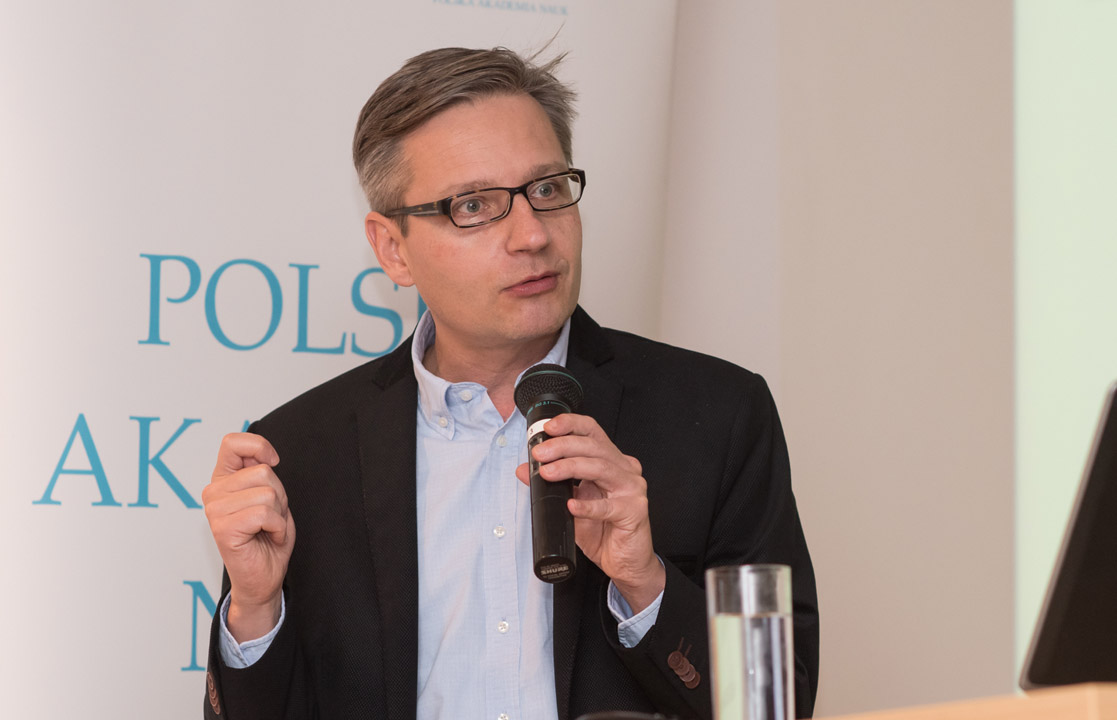
Prof. Andrzej Dziembowski
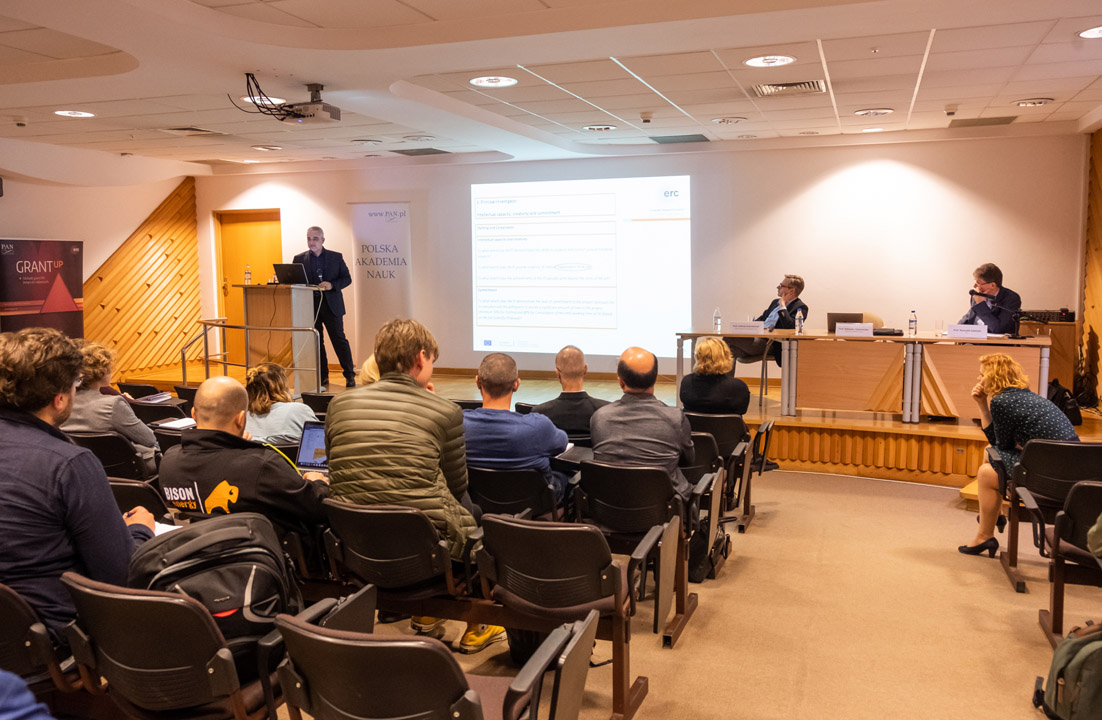
The third session was focused on social sciences and humanities. The session started with prof. Manuel Arellano discussing the requirements related to the ERC grant application. Next, Dr. Michał Németh affiliated with the Jagiellonian University, shared his experience gained during writing a winning application, for which in 2018 he received the ERC grant.
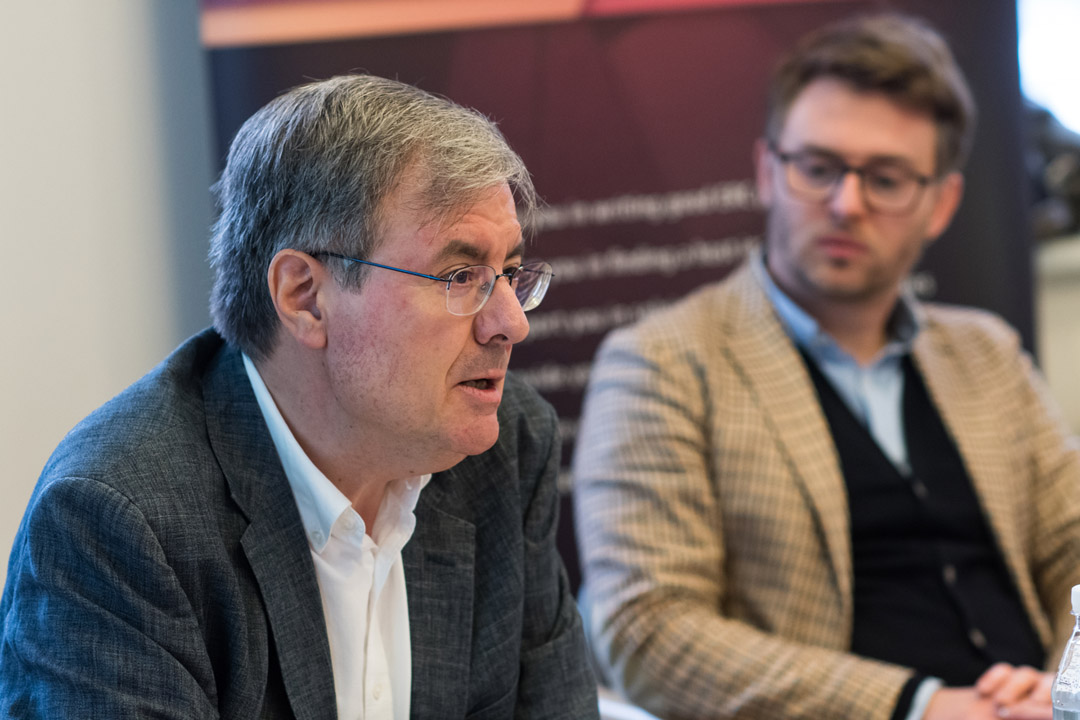
Prof. Manuel Arellano i dr Michał Németh
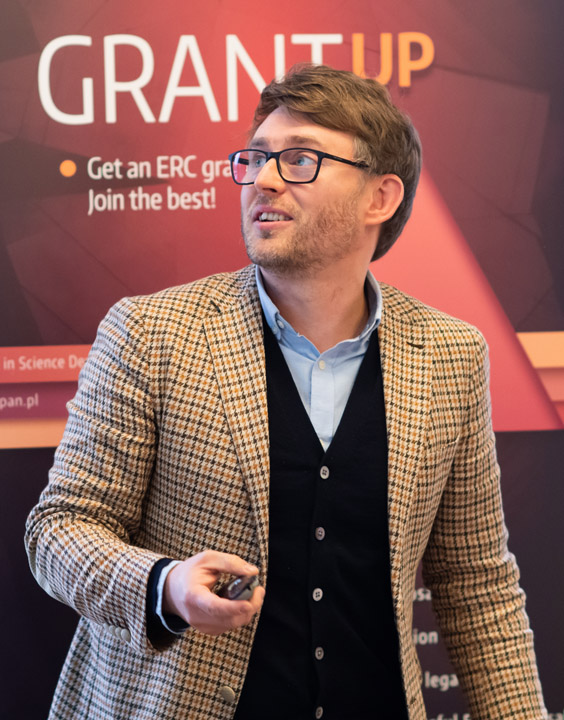
Dr Michał Németh
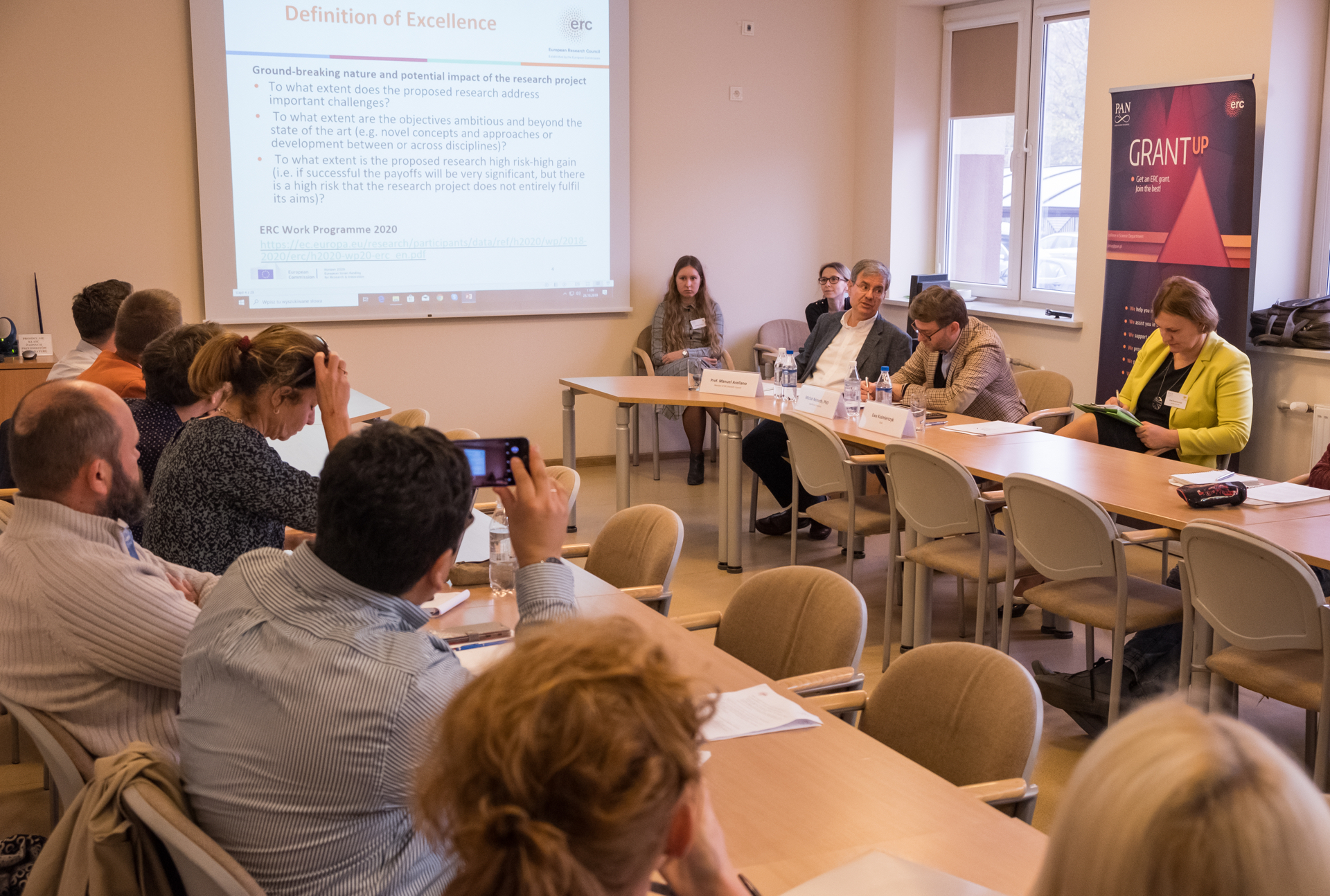
Challenges encountered by Polish scholars when dealing with the ERC grants
A panel, concluding the whole event, aroused the most emotions. The participants attempted together to find an answer whether the ERC grants are attractive for Polish scholars. A discussion was moderated by Ewa Kuśmierczyk from the Excellence in Science Department of the PAS.
The panel was attended by:
- experienced scientists: prof. Andrzej Jajszczyk and prof. Nektarios Tavernarakis from the ERC Scientific Council, prof. Tadeusz Burczyński, the Director of the Institute of Fundamental Technological Research
- laureates of the ERC grants: Dr Piotr Achinger, Dr Michał Németh, Prof. Andrzej Dziembowski
- young scholars: dr Dominika Kwaśnicka (SWPS University of Social Sciences and Humanities), a laureate of the Homing Programme of the Foundation for Polish Science; dr Ewa Sell-Kubiak (Poznań University of Life Sciences), a member of the Young Scientists Council; Dr hab. Wojciech Fendler (Medical University of Łódź), a member of the Polish Young Academy, and Dr Rohan Soman (Institute of Fluid-Flow Machinery of the Polish Academy of Sciences), a member of the MSCA Actions Alumni Association.
During a workshop, the ERC grant laureates encouraged Polish scholars to boldly approach their research dreams and devote time to precisely refine their ideas.
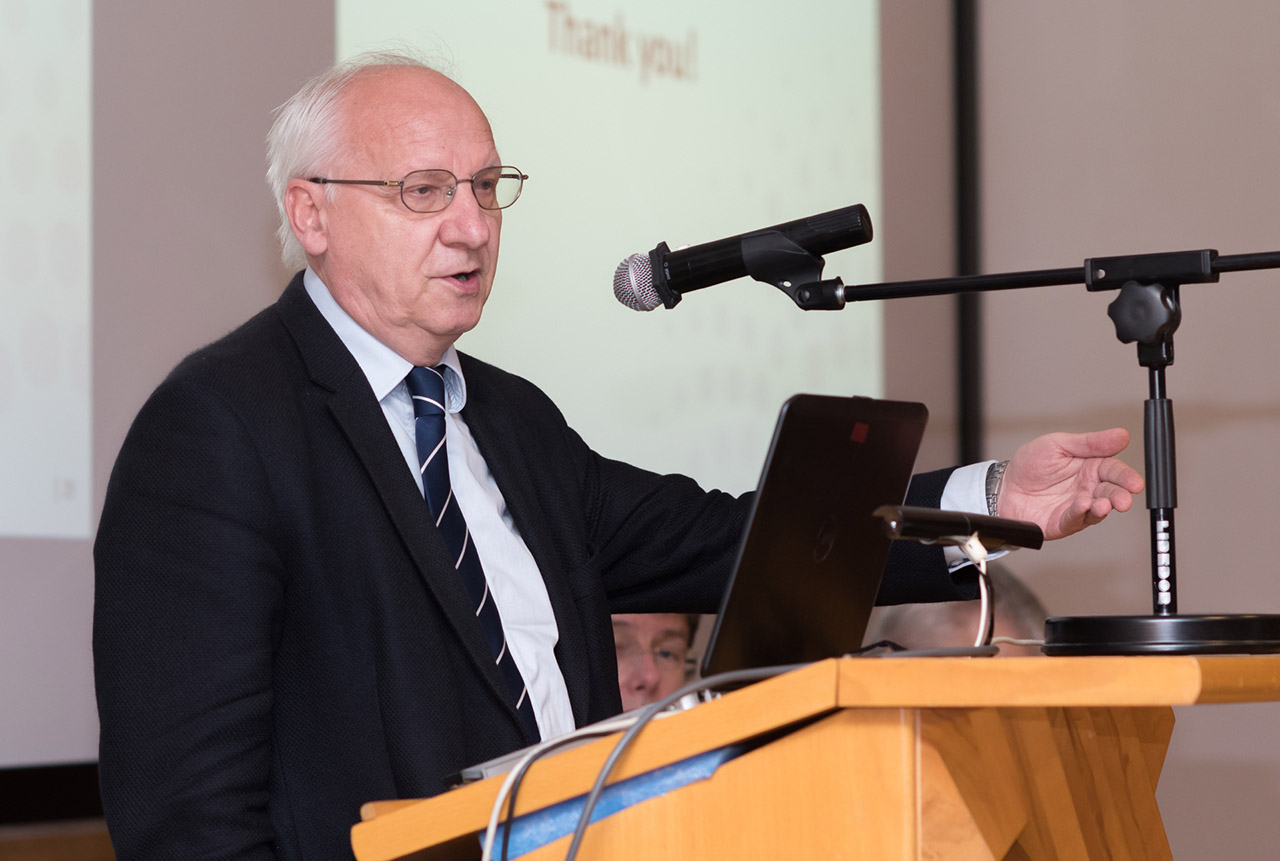
Prof. Zbigniew Marciniak
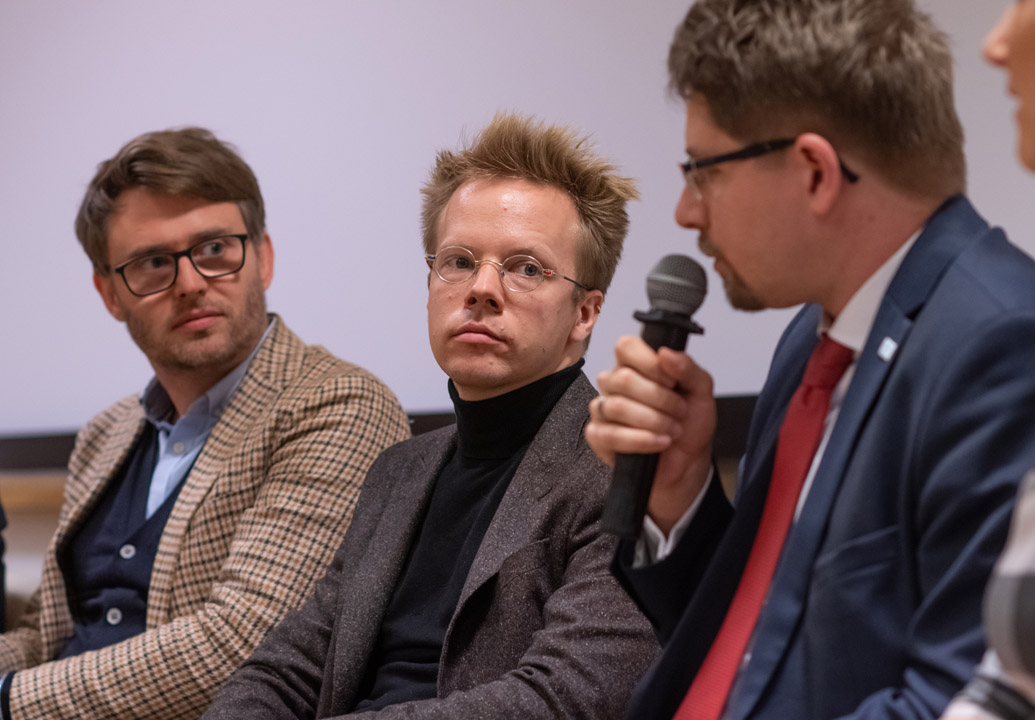
Dr Michał Németh, dr Piotr Achinger i dr hab. Wojciech Fendler
The event was accompanied by a poster session as well as a presentation of possibilities offered by various research funding agencies.
The ERC grants
The ERC – European Research Councils is the EU agenda established in 2007. Its goal is to support the best researchers, engineers, and scholars. The ERC Scientific Council consists of 22 first-class representatives of the European scientific community.
The prestigious ERC grants finance pioneering research in the European Union. The motto of the program is “High risk – high gain”, and the only criterion for assessing ideas is their scientific excellence. The budget of a single project is up to 3.5 million €. For a researcher, obtaining the ERC grant is one of the highest individual achievements. In 2019, two young Polish scientists obtained the ERC funding in the frames of the Starting grant competition. We are still waiting for the results of this year’s ERC Consolidator scheme, in which four of polish researchers managed to get to the second stage.
Support offered by the Polish Academy of Sciences
The Polish Academy of Sciences supports Polish scholars in applying for the ERC grants. The researchers can use free help offered by our Excellence in Science Department (https://instytucja.pan.pl/index.php/doskonalosc-naukowa).
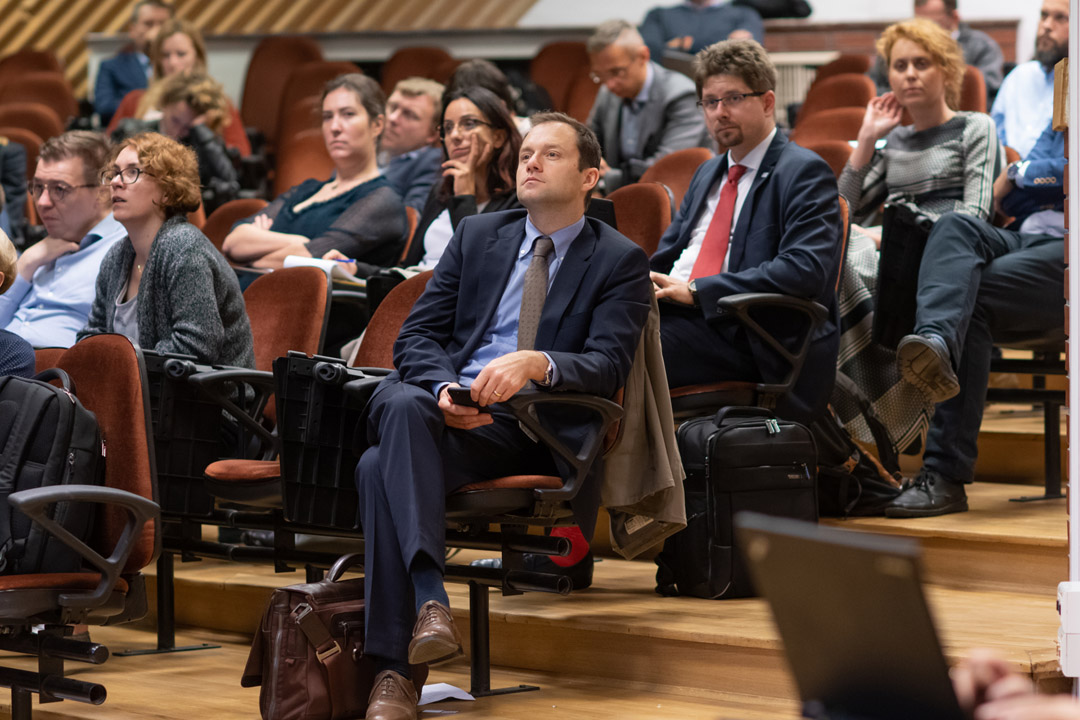
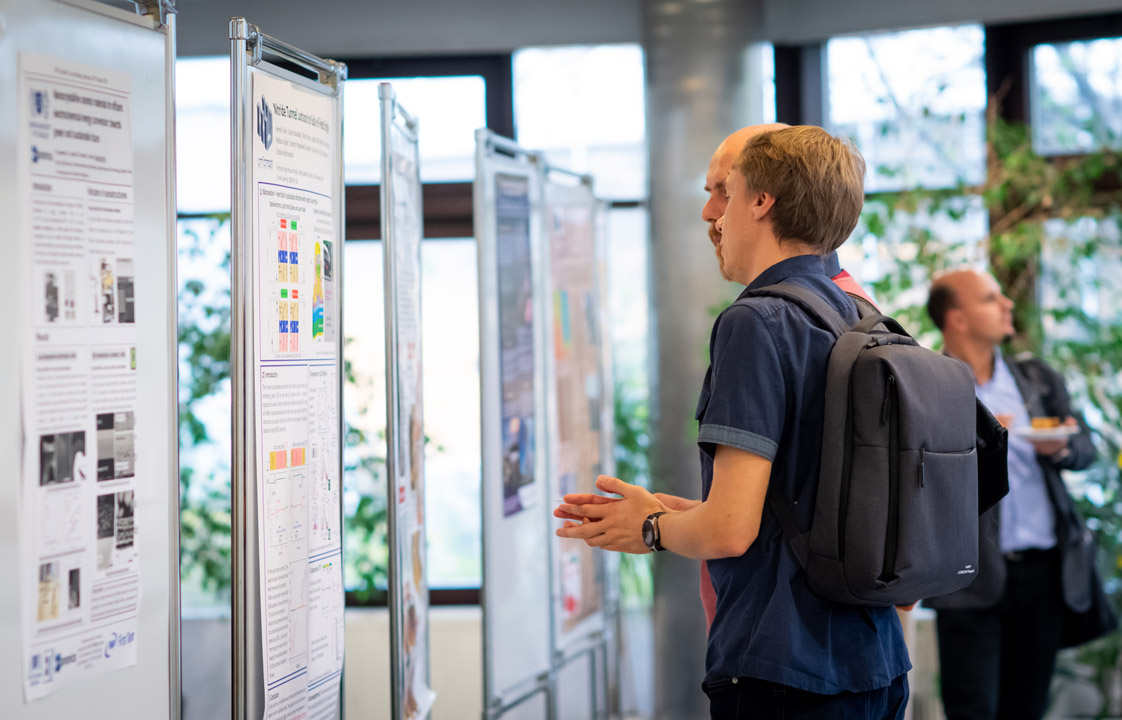
Source of information: Polish Academy of Sciences
Photos: Jarosław Deluga-Góra / PAN
Watch the event on YouTube.
